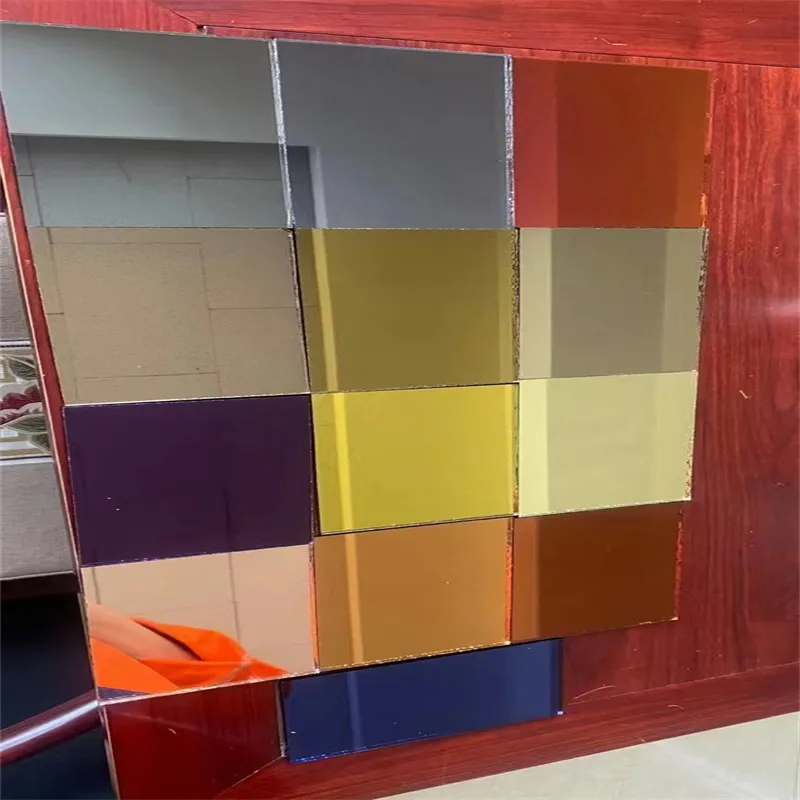Dec . 03, 2024 16:16 Back to list
Exploring the Benefits and Applications of Coated Glass in Modern Architecture
The Significance of Coated Glass in Modern Applications
Coated glass has emerged as a vital component in various industries, leveraging advancements in material science to enhance both functionality and aesthetics. From architectural designs that harmonize with the environment to energy-efficient solutions in the automotive sector, coated glass serves numerous purposes that significantly impact our daily lives.
Understanding Coated Glass
Coated glass refers to glass that has undergone a process where a thin layer of metal or a polymer is applied to its surface. This coating serves to alter the optical and physical properties of the glass. The applications of coated glass can be broadly categorized based on their purpose solar control, low-emissivity (Low-E), and anti-reflective coatings. Each serves a unique function while contributing to the overall efficiency and sustainability of a building or product.
Energy Efficiency and Sustainability
One of the most critical benefits of coated glass is its energy efficiency. Low-emissivity coatings, for instance, are designed to minimize the amount of infrared and ultraviolet radiation that passes through the glass without compromising the visible light. This characteristic allows buildings to retain heat during winters and reject excessive heat during summers, making them significantly more energy efficient. As a result, businesses and homeowners can reduce their energy consumption, leading to lower utility bills and a smaller carbon footprint.
In an era where sustainability is paramount, many architects and designers are turning to coated glass as a solution that complements green building practices. The integration of this technology in modern architecture not only enhances energy savings but also contributes to achieving LEED certification. This certification acknowledges buildings that strive for sustainability and energy efficiency, thus fostering a healthier environment for inhabitants.
Aesthetic Appeal
Beyond energy efficiency, coated glass also offers aesthetic advantages. Architectural innovations often rely on the visual impact of glass treatments to create stunning facades. Coated glass can be treated to achieve various finishes, from reflective surfaces that create a striking look to colored and patterned options that add character to buildings. These design capabilities enable architects to push boundaries and create visually appealing structures without compromising functionality.
coated glass

Moreover, the reflective and tinted coatings often used in commercial properties provide privacy while still allowing natural light to permeate the interior. This balance between aesthetics and functionality is crucial in urban environments, where both the appearance of buildings and the comfort of their occupants are taken into consideration.
Applications in the Automotive Industry
The automotive industry has also recognized the importance of coated glass. Windshields and windows can now be designed with advanced coatings that provide better visibility and protection. For instance, anti-reflective coatings are used to reduce glare, improving safety for drivers and passengers alike. In addition, some coatings provide scratch resistance and can significantly enhance the durability of automotive glass.
Furthermore, innovations in coated glass have led to the development of smart glass technologies. These include electrochromic glass, which can change its tint according to the amount of sunlight, thus enhancing passenger comfort within the vehicle while also contributing to energy efficiency by moderating temperature.
Challenges and Future Directions
Despite the numerous advantages offered by coated glass, there are challenges that must be addressed. The durability of coatings, especially in outdoor and high-wear applications, is a continuous concern. Manufacturers are working on developing more resilient coatings that maintain their properties over time.
Looking to the future, the potential for coated glass is immense. As technology continues to advance, we can expect continued improvements in coating materials, which will lead to better performance and expanded applications across industries. From smart buildings that adapt to their environments seamlessly to innovative automotive designs, the versatility of coated glass promises to play a crucial role in shaping sustainable and efficient solutions for years to come.
In conclusion, coated glass illustrates the intersection of technology, design, and sustainability. With its ability to enhance energy efficiency, add aesthetic value, and contribute to modern applications, coated glass is undoubtedly a critical material that will continue to influence various sectors moving forward.
-
Safety and Style with Premium Laminated Glass Solutions
NewsJun.24,2025
-
Reinvents Security with Premium Wired Glass
NewsJun.24,2025
-
Premium Float Glass Line for Modern Architecture
NewsJun.24,2025
-
Low Emissivity Glass for Energy-Efficient Architecture
NewsJun.24,2025
-
High-Performance Insulated Glass Solutions for Modern Architecture
NewsJun.24,2025
-
Elevates Interior Style with Premium Silver Mirror
NewsJun.24,2025
Related PRODUCTS














